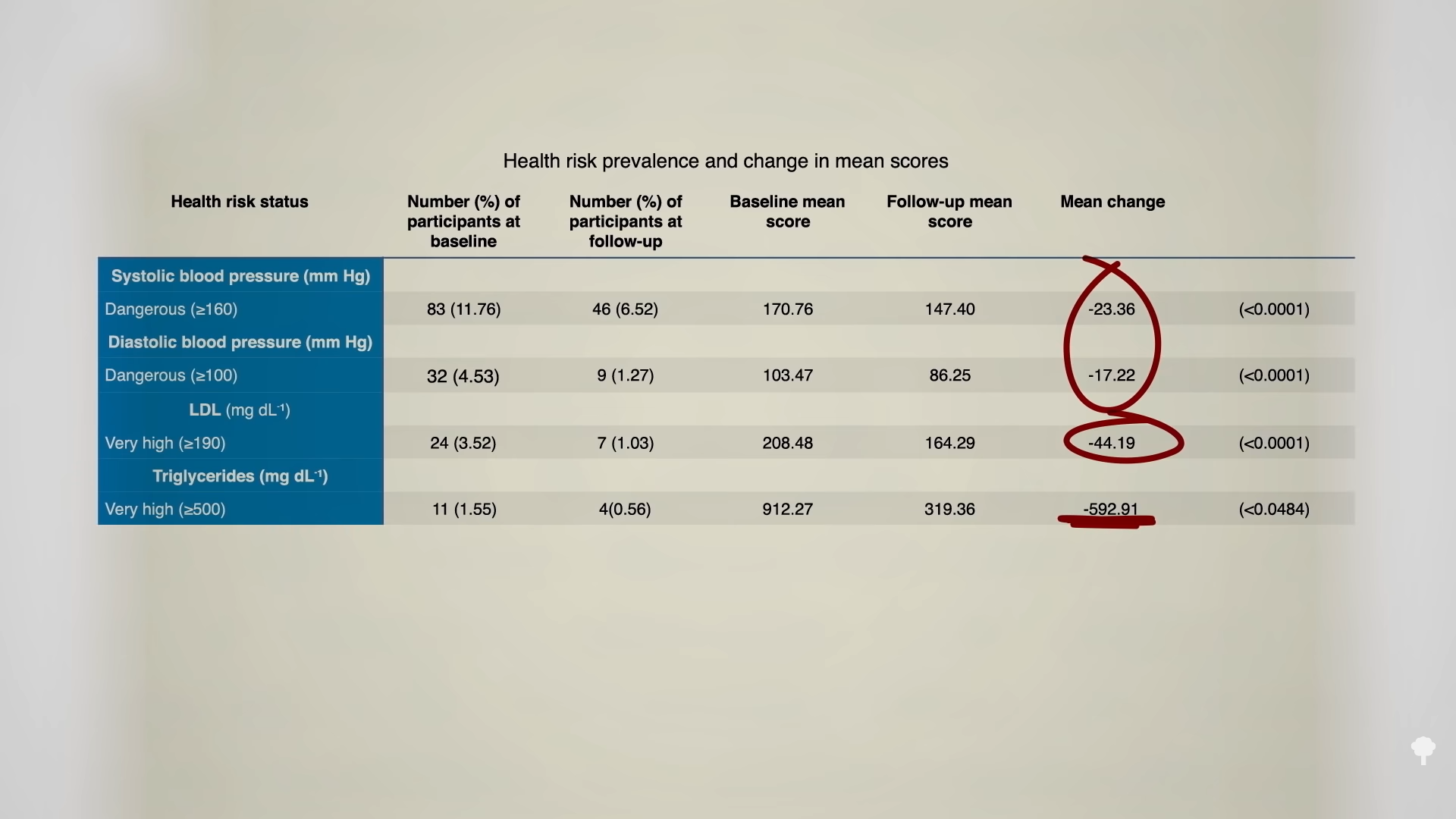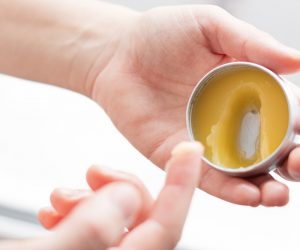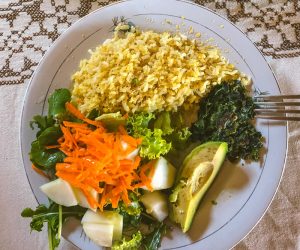
Which Diet Works Even Better the Longer You Do It?
Michael Greger M.D. FACLM via Nutrition Facts – The most well-published community-based lifestyle intervention in the medical literature is also one of the most effective.
CHIP, the Complete Health Improvement Program—now known as Pivio, may be “the most well-published community-based lifestyle interventions in the [medical] literature.” It is also one of the most effective, with clinical changes “approaching those outcomes achieved in [live-in] residential lifestyle programs.”
As I discuss in my video The Weight Loss Program That Got Better with Time, CHIP encourages people to transition toward a more whole food, plant-based diet, and the “average reductions in blood pressure were greater than those reported with the DASH [Dietary Approaches to Stop Hypertension] study and comparable with the results” of blood pressure-lowering drug trials. If we’re going to reverse the worldwide chronic disease epidemic, though, we’ve got to scale this up. To make CHIP more accessible to a wider audience, each of Hans Diehl’s live presentations was videotaped. Then, a “trained and certified” volunteer facilitator got people in a room to watch the videos and helped foster discussion. When it comes to safe, simple, side effect–free solutions, such as a healthier diet and lifestyle, you don’t need to wait for a doctor to show up and give a lecture. Sounds great, but does it work?
Those individuals who were the worst of the worst and participated in the program, finishing all the videos, had a 20-point drop in blood pressure, a 40-point drop in bad LDL cholesterol, and more than a 500-point drop in triglycerides, as you can see below and at 1:08 in my video. Of those who came in with diabetic-level fasting blood sugars, about one in three left with nondiabetic-level fasting blood sugars. Remember, all of this was achieved simply by empowering people with knowledge. Just encouraging people “to move toward a whole-food, plant-based diet” led to these remarkable benefits.

What was the effectiveness of this volunteer-delivered lifestyle modification program on 5,000 participants? The same kind of significant reductions in weight, blood pressure, cholesterol, triglycerides, and blood sugars were found. Most studies giving “dietary advice to free-living subjects can be expected to reduce blood total cholesterol by only 3-6%…[but a] sustained reduction in blood total cholesterol concentration of 1% is associated with a 2-3% reduction in the incidence of heart disease.” So, on a population scale, even small differences matter. Put thousands of people through just one month of CHIP, however, and you get an 11 percent drop on average and up to a nearly 20 percent drop among those who need it most, as you can see below and at 2:12 in my video.

Do the participants maintain their healthy habits, though? Doctors can’t even get most people to take a single pill once a day. How effective can a volunteer-led video series be at getting people to maintain a change of eating habits? Researchers looked at the CHIP data to find out. How were participants doing 18 months after completing the program? Most were able to maintain their reductions of meat, dairy, and eggs, though some of the junk food had started to slip back in. Their fruit and veggie consumption dipped, though not back to baseline. Ready for the huge shocker? Even though the participants had been told explicitly to eat as much as they wanted without any calorie- or carb-counting and without any portion control, just by being informed about the benefits of centering their diets more on whole plant foods, by the end of the six-week program, they were eating, on average, about 339 fewer calories a day without even trying. Instead of eating less food, they were just eating healthier food.
But that was right at the end of the six-week program when they were all jazzed up. Where were they 18 months later? Anyone familiar with weight-loss studies knows how it works: You can excite anyone in the short term to lose weight using practically any kind of diet, but then after six months or a year, they tend to gain it all back—or even more. The CHIP participants were eating about 300 fewer calories a day during the program, but 18 months later, they were eating about 400 fewer calories. What kind of diet can work even better the longer you do it? A whole food, plant-based diet. “Many weight loss programs restrict energy [calorie] intake by limiting portion sizes, which often results in hunger and dissatisfaction with the eating regime, thus contributing to low compliance and weight regain,” but the satiety-promoting all-you-care-to-eat plant-based, whole-food dietary approach may be the secret weapon of sustainable weight loss.
Key Takeaways
- The Complete Health Improvement Program (CHIP) encourages transitioning to a more whole food, plant-based diet and may not only be the most well-published community-based lifestyle intervention in the medical literature, but also one of the most effective.
- Its clinical changes may be on par with outcomes achieved in live-in lifestyle programs, and the average drop in blood pressure achieved with CHIP exceeded reports by the Dietary Approaches to Stop Hypertension (DASH) study and was comparable to results from trials with blood pressure–lowering drugs.
- To make CHIP more widely accessible, each live presentation delivered by Hans Diehl, the developer of the program, was videotaped so volunteer facilitators, each trained and certified, could screen the lectures and foster discussion among participants.
- Participants who completed the facilitated video program had a 20-point drop in blood pressure, a 40-point drop in bad LDL cholesterol, and more than a 500-point drop in triglycerides. Most of those who started CHIP with diabetic-level fasting blood sugars left with nondiabetic levels.
- Typically, studies giving dietary advice to participants not in a live-in setting may get cholesterol reductions of 3 to 6 percent, and sustained reduction of 1 percent is associated with a 2 to 3 percent drop in heart disease incidence. Just one month of CHIP achieved an 11 percent drop on average and up to a nearly 20 percent drop among those participants most in need of intervention.
- Eighteen months after completing the volunteer-led video series, most CHIP participants maintained their reductions of animal products, though some began eating more junk food and less fruits and vegetables (though not back to baseline quantities). Importantly, they were eating about 400 fewer calories a day than before they started CHIP. (At the end of the six-week video program, they were down only 300 daily calories.)
- Unlike many weight-loss programs that count calories and limit portion sizes, an all-you-care-to-eat plant-based, whole food dietary approach appears to be more sustainable.
To read the original article click here.






